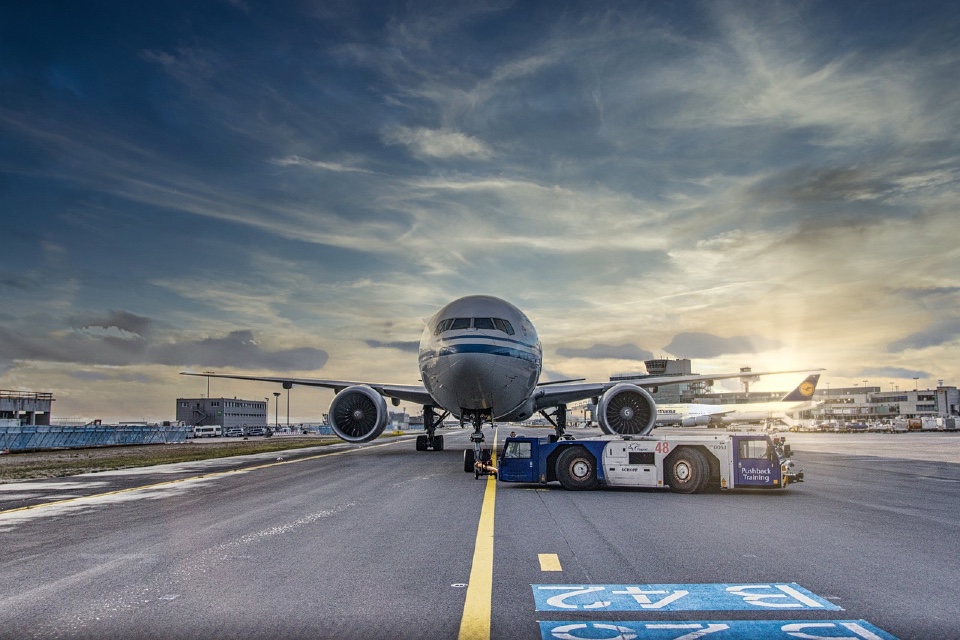More than 50 CEOs have come together to join the World Economic Forum’s new Airports of Tomorrow initiative, ranging from equipment manufacturers and fuel producers to engineering firms and airports. The initiative will focus on supporting airports to make the profound changes to their operations and infrastructure that will enable net-zero aviation.
Participants will be working together to:
- Articulate the infrastructure requirements, through a series of blueprints, for airport ecosystems to transform their operations for sustainable aviation fuels (SAF), electric and hydrogen-fuelled aircraft
- Produce a geographical distribution map of the 300 SAF plants that will be needed to stay on track to achieve net zero by 2030, broken down by region to maximize the sustainable feedstock potential in each part of the world
- Mobilise capital through innovative financing mechanisms; for example, through the co-design of a SAF fund and creative regulatory and policy instruments
- Deliver a sustainable finance toolkit to mobilize the billions of dollars of investment needed to transform airports into clean energy hubs
Airports of Tomorrow members include: Airbus, Arup, Atkins, Boeing, Mott MacDonald, Neste, LanzaJet, Dufry, Menzies Aviation, Dallas Fort Worth (DFW), Mundys and its Aeroporti di Roma, London Heathrow, and many more. The full list of members can be found here.
Reaching net-zero emissions in the aviation industry will require an annual investment of approximately $175 billion, reaching $5 trillion by 2050, to enable the transition to emerging technologies and alternative propulsion methods like SAF and battery-electric/hydrogen powered flight. The Airports of Tomorrow initiative will bring together leading stakeholders in the aviation ecosystem to help mobilize this capital and forge a path towards net zero.
“We see airports as strategically located epicentres of activity, where leaders from across the aviation ecosystem can convene and work together to transform the industry,” said Lauren Uppink, Head, Climate Strategy, World Economic Forum. “If the right planning and investment decisions are made today, airports can play a pivotal role in shaping a sustainable future for aviation as well as other transport sectors. The Airports of Tomorrow initiative will help airports harness these opportunities, enabling them to fulfil their potential as clean energy hubs and standard-bearers for the net-zero economy.”
The shift will entail huge changes in infrastructure, both on and off airport sites. For example, it is estimated that airports could consume five times more electricity than they do today to power alternative propulsion methods, with global electricity demand for airports set to reach 600-1,700 TWh of clean energy by 2050, equivalent to the energy generated by a solar farm half the size of Belgium.
The massive land footprint of airport sites also allows for new infrastructure that typically has not been associated with airport activity before, such as solar photovoltaic farms, blending facilities for liquid fuels, and storage for either liquid or gas hydrogen.
Most airports have space for hydrogen liquefaction and storage infrastructure but not enough land to generate all of the clean energy needed to power battery-electric and hydrogen aircraft. Airports will have to establish new supply networks and partnerships to develop and scale off-airport infrastructure in addition to their on-site infrastructure changes, primarily in power generation, electrolysis and liquefaction, as well as the supply of sustainable aviation fuels.
“As a leading player in transport infrastructure enabling the mobility of several million people across the world,” said Giampiero Massolo, Chairman, Mundys’, “We see the transformation of airports towards net-zero aviation as a building block of our strategy focusing on sustainable infrastructure and multi-modal, integrated mobility services to improve life for people on the move. We are keen to work with the leading stakeholders in the aviation ecosystem to help mobilize the huge investment needed to transform airports into clean energy hubs.”
“Airports serve as powerful cornerstones of the aviation ecosystem where we can unite, collaborate and facilitate the industry’s sustainability transformation,” said Sean Donohue, CEO, DFW Airport. “By making the right planning and investment decisions today, we have the unique opportunity to shape a sustainable future for aviation and set examples for other public and private sectors. Through initiatives like the Airports of Tomorrow, we are dedicated to harnessing these opportunities, unlocking our full potential as clean energy hubs, and setting the standard for the net-zero economy.”
“Any pathway to achieving net-zero aviation will require a fundamental transformation in energy provision – with implications across both airport infrastructure and wider energy networks,” said Graham Bolton, Global Practice Leader for Aviation, Mott MacDonald. “By considering the airport as part of a wider ecosystem we can develop new solutions that facilitate decarbonisation of aviation and deliver wider community benefits. As Mott MacDonald we are already integrating aviation, energy and climate expertise to help airports meet their environmental and social commitments; and we are excited to build on this as a champion for Airports of Tomorrow.”









